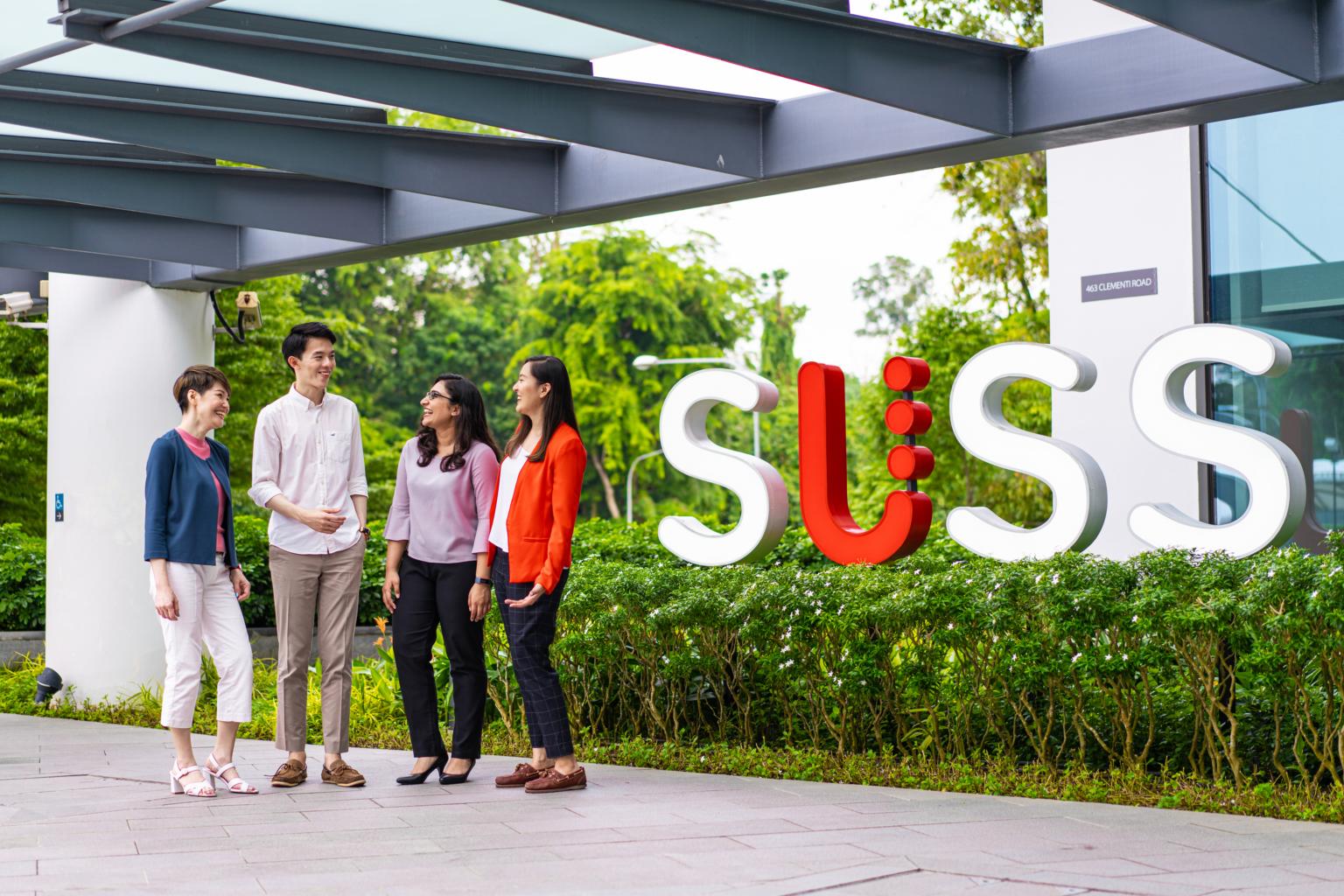Budget debate: More places for adult learners on the cards, new transition programme for mid-career workers
Sign up now: Get ST's newsletters delivered to your inbox

The target is for 40 per cent of each graduating cohort take up subsidised places at local universities, with 10 per cent allowance for adult learners.
PHOTO: SUSS
Follow topic:
SINGAPORE - There will be more opportunities for mid-career Singaporeans to go back to school and get a degree as the Ministry of Education (MOE) studies the possibility of a higher lifetime cohort participation rate in education.
It is considering allowing more working adults to get places in government-funded degree programmes, said Education Minister Chan Chun Sing at the Budget debate in Parliament on Monday (March 7).
MOE will also launch a SkillsFuture Career Transition Programme to help Singaporeans get skills training, he added.
It will start in April, with training courses broken into modules that will last between three months and a year.
All these courses will involve industry exposure and will be subsidised at a rate of up to 90 per cent for those aged 40 and above.
Minister of State for Education and Manpower Gan Siow Huang said there will also be additional funding support of up to 95 per cent for those with greater needs, such as those who have been unemployed for six months or longer.
She was responding questions from Ms Foo Mee Har (West Coast GRC), Mr Shawn Huang (Jurong GRC) and Mr Darryl David (Ang Mo Kio GRC) - all of whom sit on the Government Parliamentary Committee for Education - on how Singapore’s continuing education system can be strengthened.
The new scheme will combine features from the SGUnited Skills and SGUnited Mid-Career Pathways-Company Training programmes which were launched in 2020 to help tide Singaporeans through the economic impact of the Covid-19 pandemic.
Both schemes will wrap up at the end of this month. The new initiative replacing them will be permanent and highly subsidised, Mr Chan said.
The ministries of Education, Manpower, Trade and Industry, and Finance are studying how to enhance structural support for Singaporeans in their 40s and 50s who may need significant reskilling, he added.
He said MOE will study the proportion of places allocated for pre-employment training and continuing education degree programmes at local institutes of higher learning (IHLs).
The current target is for 40 per cent of each cohort of fresh school leavers to take up subsidised places at the local universities, with another 10 per cent allowance for adult learners.
The country should look beyond this and focus instead on making sure that people can upskill continually according to their needs and aspirations, he added.
Mr Chan said: "We traditionally focused on investing in the first 20 to 25 years of our people's lives. On average, we spend a quarter of a million dollars on each child to prepare him for his first job.
"But in the future economy, workers and firms will face greater disruption and faster skills obsolescence."
Singapore's IHLs - which include the six autonomous universities, five polytechnics and the Institute of Technical Education - must review their programmes with adult learners in mind, he added.
He said: "While the number of adult learners trained by our IHLs has more than doubled from around 165,000 in 2018 to 345,000 in 2020, we can expect this number to increase further."
This means that schools must use technology to make learning accessible, he noted, giving the example of how the Singapore University of Social Sciences uses a flexible, modular curriculum to cater to adult learners.
There must also be a stronger connection between the IHLs and the industry, he added, saying that industry and workforce transformation must go hand in hand.
To remain relevant, IHLs must partner the industry to provide more workplace learning opportunities such as internships.
He said: "By 2025, work-study programmes will be a mainstay pathway catering to 12 per cent of each age cohort, up from 4 per cent today."
The IHLs must also work to make sure their faculty remain industry relevant, as well as collaborate with the industry on research projects, he added.

